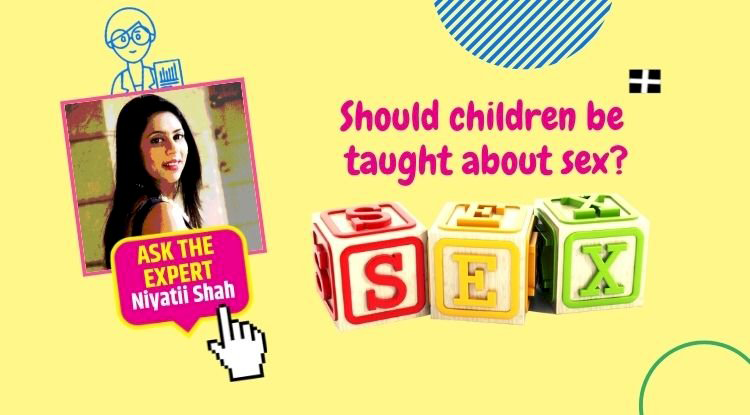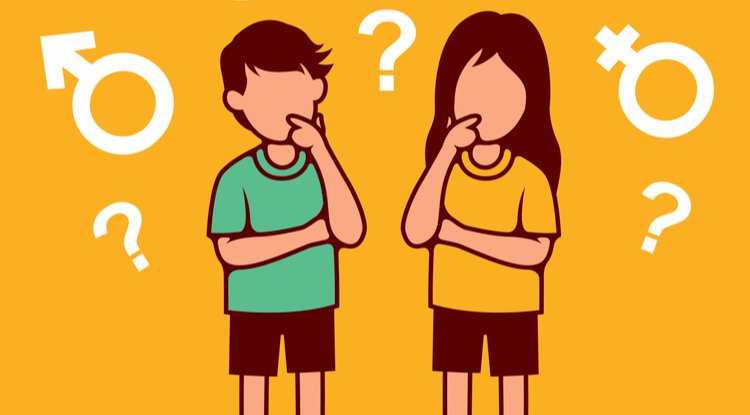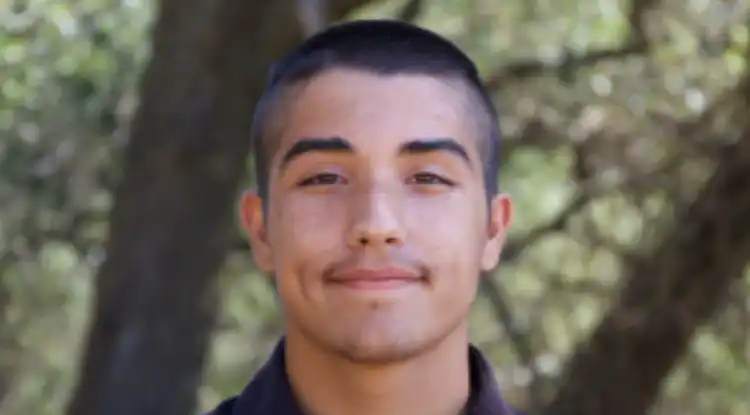Should children be taught about sex?
When it comes to sex education, parents unanimously vote for the abstinence approach, meaning they do not want their children to have (or even know about) sex or any kind of sexual activity. But does that work? As teenagers develop into adults, is it safe for our children to move to adulthood, without any knowledge of sex or sexual activities. Sexuality educator Niyatii N Shah discusses the need for comprehensive sexuality education for children.

Children as sexual beings
Often in my practice, parents ask questions such as:
“I caught my teenager masturbating, now what should I do?”
“My child is chatting with strangers on social media platforms and is not stopping.”
“My daughter says she never wants to have kids because it hurts a lot. How do I change her mind?”
When I tell them that the answer to all their problems is Comprehensive Sexuality Education, a sudden and uncomfortable silence follows.
That’s right. When it comes to sex education, parents unanimously vote for the abstinence approach, meaning they do not want their child to have sex or any kind of sexual activity.
They would just say to me, “Just make sure my child understands that s/he MUST NOT indulge in sex or sexual activities!”
I understand, we all want our children to be safe. Safe from strangers, from an unwanted pregnancy and heart breaks. Many parents also want their children to give priority to their studies and career and hence promote abstinence.
But does that work? The short answer is no. Humans are sexual beings, children are human, hence children are sexual beings.
If we tell them they must not think about these feelings, can our children suddenly not feel attracted to someone? Would they not talk to new people and develop new feelings? Would they not explore? They would!
So, the first step is to understand these facts and accept them. The next step would be to prepare our teenagers for handling this side of their journey to adulthood, help them stay safe and develop themselves into independent, happy and healthy individuals.
Sexual Development and Behaviour
The next thing I tell parents is to be cognizant of the sexual developments and behavioural changes children may undergo during their adolescent years. Often parents are too caught up with education and career paths, that this side of things may be left unobserved or at least keenly so.
Understanding these developments, help you understand your teens better. Once you know what’s happening with them, you can explore ways to help them.
10-13 years (Early adolescence)
- Puberty begins between the ages of 9 and 12 for most girls and between 12 – 15 for boys.
- Girls begin to develop breasts.
- Girls and boys grow pubic hair and their genitals will grow too.
- Some may gain weight during puberty.
- A boy may start to produce sperm.
- Girls get their periods.
- Curiosity about sexual activities begins to develop.
- Some may kids may explore activities such as kissing
- They come across new information / terms – sex, homosexuality, rape etc
- Children may whisper, say out loud, write or discuss sexual terms or share sexual jokes.
- They may see sexual content online.
14-18 years (Late adolescence)
- Some may be struggling to cope with changes in their body.
- Some may struggle with body image issues
- Masturbation.
- Boys may worry about their penis size. Girls may worry about their breast size.
- Some may feel that having a girlfriend / boyfriend proves their self worth.
- There is peer pressure to experiment.
- There may be some knowledge about condoms and pills.
- They crack jokes on sex and body parts.
- Trying to fit in to popular culture
- Teenagers between 16 – 18 may have sex
- They might watch porn.
- They may form an impression of what their partners should look and be like.
These are only a few of several changes that your children may be experiencing as they go through adolescence.
Once you are mindful of what your children are going through, you can guide or help them. But they will only follow your guidance or let you help them if you acknowledge how they feel and think.
Teenagers are in the process of becoming independent individuals having their own beliefs and values. The more you understand them and allow them to have their own understanding of things, the more they trust you to guide them in the right direction. Else most children believe their parents are orthodox and narrow minded and may shut them out from their journey to adulthood.
A few tips that will help you guide your child:
- Understand what your child is going through.
- Acknowledge their feelings, their beliefs and interests.
- Have conversations with them rather than one sided instructions
- Treat them as adults; don’t expect adult maturity.
- Keep patience if your child does not agree with you instantly.
- Approach the topics by giving real life stories and situations.
- Share your thoughts, beliefs and values with them.
- Share your concerns with them.
- Share good resources with your teenagers to help them access quality information.
- Read good quality resources yourselves on parenting teenagers
Just like toddlers learn to walk or recognize mom and dad, adolescents hit important milestones in how they recognize, experience and feel about their bodies. By understanding how your teenagers grow and learn, you can play an important role in fostering their emotional and physical health and Comprehensive Sexuality Education is an integral part of it.
Last but not the least, as we often remind parents, Comprehensive Sexuality Education, is not teaching children just about sex. It teaches them to understand their bodies, their feelings and provides them the knowledge to navigate themselves as sexual beings.
Without this education, they will step into adulthood but without a proper education and critical information. Would we do that once it comes to other aspects of adulthood such as financial independence? Then why the risk with this aspect that will govern a major part of their adult lives? I leave that question with you.
Niyatii N Shah is a sexuality educator, intimacy coach, author, TedX speaker based out of Mumbai. She can be found on Twitter here.

Have a query? Ask our experts! In this column, we take questions from adolescents and their parents on growing up, adolescence, puberty and everything in between; and put them to subject matter r experts.
Listen to the podcast on this topic at here. Read rest of the article below it-


